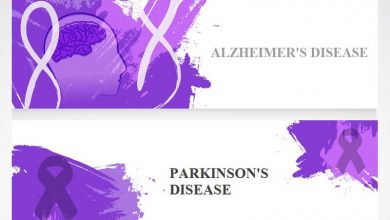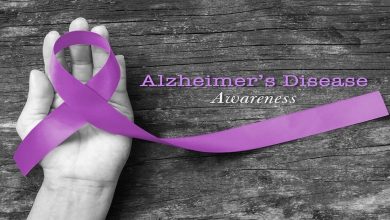How Music Can Help Alzheimer’s


In the absence of a cure, strategies and treatments to improve cognition and quality of life become the next best thing. And when they’re low cost and easy to implement, all the better.
Enter music therapy: Music and music therapy are not curative of Alzheimer’s and dementia, but the use of music therapy results in the beneficial effects on dementia and Alzheimer’s symptoms. These benefits lead to an enhanced quality of life for both the patient and his or her caregiver.
Beyond the entertainment value, there’s also growing evidence that listening to music can also help stimulate memory and exercise cognitive function. Just like doing physical therapy can strengthen muscles, listening to music is a sort of cognitive exercise.
Music speaks to a person’s feelings, so it is a sensory and not intellectual experience. That is partly why experts say it works: People with Alzheimer’s feel no pressure to understand it and they can just experience it. The readily observable results, caregivers say, include improved social skills and reduced agitation and behavioral problems.
Not just any music will do, though. Caregivers should be extremely sensitive to finding music their loved one will feel a connection to. The wrong music can actually induce negative results, agitating the patient instead of calming them.
Alzheimer’s robs people of their short-term memory, but their long-term memory can remain largely intact. Since, patients maintain vivid memories of the past, playing music from that time period might speak to their current reality. For the current over 80s crowd, music from Glenn Miller and Lawrence Welk, or rhythm and blues, instrumental hymns or spiritual songs might be invaluable.
In addition to finding the right music to soothe a loved one with Alzheimer’s, a caregiver needs to also be aware of minimizing other sensory stimulation. A radio may be too distracting because of ads. Headphones may work for some, but not others. A TV on in the same room, or other noise, might be distracting. However, singing along, or swaying or clapping hands with the music can be therapeutic and increase a patient’s enjoyment.
And the effects of music on Alzheimer’s may extend beyond just soothing patients moods. In a study published online in the journal Cerebral Cortex, researchers found that when songs conjured up a specific personal memory, there was particularly strong activity in the medial prefrontal cortex. It turns out, that same part of the brain has been identified in earlier research as one of the last parts to atrophy as Alzheimer’s disease progresses, making this an especially promising way to connect with Alzheimer’s patients.





